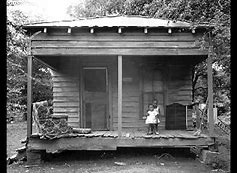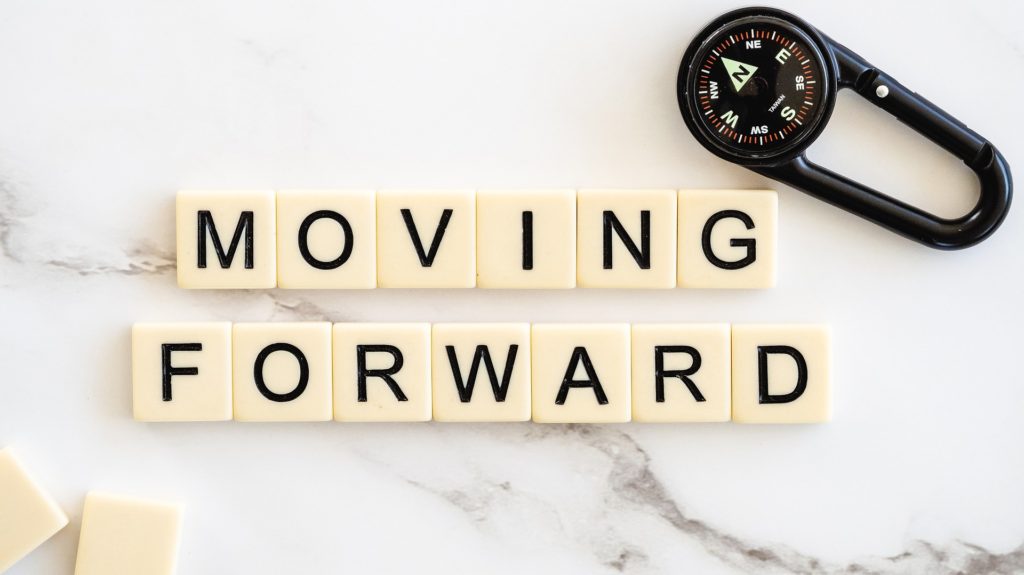After returning to Memphis, I was a divorced mother of two young children. I wanted them to have a good healthy life. A stressed out mother who was trying to live above her needs would not provide this life. A previous high consumption lifestyle taught me to live beneath my means. I patterned my parenting after MaDear and Dad. In my eyes, they were the best teachers and parents in the world. They survived a life living in poverty with five children in tow. They relied on their faith in God for the hard times. Positive influencers in my life helped me carry some of the luggage during my journey. Negative influencers weighed me down and I gave myself permission to unload the unnecessary baggage.
Remember, I needed a plan to not only get out of poverty but stay out of poverty. I was not looking for wealth but stability. Wealthy people can lose their wealth due to a high consumption lifestyle, poor spending habits, bad business decisions and the list goes on. Wealthy people can have a poverty mentality. I believe that changing your mindset regarding how money is viewed and spent is crucial. We must be a good steward over what God has provided us with. I released the poverty shackles of my past and changed my mindset.
The economy had changed for the better and I was changing with it. Americans depend upon jobs and fair wages to earn a living. Fortunately, I was employed and earning a fair wage. In 1964, President Johnson declared a “War on Poverty.” At that time, the national poverty rate was around nineteen percent. Congress passed the Economic Opportunity Act allowing federal funds to help eliminate poverty, help improve living conditions for low-income neighborhoods and helping poor people access economic opportunities. My family and many other families benefited from these necessary opportunities. We were given a much needed hand up. Barriers were moved out of the way. Now, it was time for me to take action and make a move. God helps those who help themselves. He gave us the power to get wealth through our abilities and it’s up to us to use them.
My interest in books changed. I enjoyed investing in books and looking at television shows about finance and wealth. I was not a financial expert but enjoyed learning about the magic of money. I learned to accept responsibility for my financial future. I bought my first home in a neighborhood I could afford. Guardian Angel from college had advised me to have good credit and I listened. He also advised me to pay myself at least ten percent of my income and I listened. I had no problems qualifying for the home loan. The home was a beautiful ranch and sat on a tree lined street in an older, predominately black neighborhood. Most of the white people abandoned the neighborhood years ago. The neighbors were friending working class people who were trying to get ahead in life. The only concern was the nearby schools were not well funded. I developed a budget to include school expenses at least during my girl’s formative years.

I learned to be frugal yet still enjoyed life. Being frugal is the cornerstone of wealth building. I developed a monthly and yearly budget. This brought focus to my spending. I learned to not let my income define my budget. I used an envelope method and didn’t deviate from my assigned allotment. I planned my consumption spending like food, clothing and mortgage on a monthly and annual basis. The budget didn’t restrict me from enjoying life but was a tool to help me track my spending. In my research, I learned to have at least an eight month emergency fund. With two growing children this was a struggle. I started with one month and gradually built up. There were a lot of things I was still purchasing that depreciated after I bought them. The budget process took time and I made small changes to make it happen. I still budget on a monthly and yearly basis and passed the power of budgeting on to my children.
At one time, I had many credit cards and was spending up to the limit. I never paid the balance every month and I became consumed with credit. Looking back at the things I bought, I didn’t need them. They were quickly forgotten after the purchase. Eventually, I cut up all credit cards except one for an emergency. I paid all my bills before time. During those times, bills were paid in person or by mail. I allowed time for the post office to deliver the bills so I wouldn’t have late charges.
I thought I learned my lesson when I first started working and bought my sporty and fast baby blue Pontiac Firebird. Cars intrigue me. I bought a new car and didn’t negotiate the final cost. When I was growing up, I remembered just about every car Cousin Fessor and my gambling uncle drove. They were new and shiny and not like the old rusty cars that would run one day and break down the next. I saw a shiny new car I liked. I could afford it so I bought it. I tried to break my habit. I bought an old non-descript Pontiac and negotiated the price. The Pontiac was not fast or sporty and I was bored with it. When I received promotions at work, I talked myself into believing I deserved to buy what I wanted. I bought several more shiny new cars that I liked and could afford without negotiating the final cost. Like other expensive things we purchase, this gave me a false sense of affluence. It took me years to overcome the habit of purchasing new cars.
When my children became teenagers, I had to compete with the lavish lifestyle of some of their peers. Many people want instant gratification by buying too many things. My children had some things; however, I chose to invest in them by supporting their interests. They participated in extra-curricular activities at school, volunteered, had summer jobs, attended informative Saturday classes at the local university and they were members of an all-city singing and dance troupe. They got the opportunity to perform across the city and out of country. They built lifelong memories and developed skills to use later in life. The pressure to impress drives many people to overspend and get in debt. Lavish lifestyles appeal to many people. If you don’t show it, you don’t have it. I realized this was the reason I purchased shiny new cars. I learned there must be healthy balance between spending and saving.
I am not a financial expert but I did learn tips along my journey. I was not brought up in an indulgent lifestyle and didn’t live one. I learned not to be dependent on the actions of the federal government. I had no control over their actions. If I wanted something, I had to work for it and save. If I wanted to invest in my future, I had to invest in my present. I invested in my employer’s 401 (k) plans and invested in being a good steward over my hard earned income. A budget is a tool I used to have a fulfilling life. I had to plan for long term financial goals for my children and myself.
I learned that many high wage earners have little accumulated wealth. The more money they have, the more some of them spend. Over spending can lead to debt. This leaves little money to invest. Some well- educated professional people are the biggest spenders because they are trying to live up to the status given to them by society. They are expected to live in expensive homes, drive expensive cars and dress accordingly. Some of these people unknowingly become the working poor because of their high consumption lifestyles.
Some years after searching for a church home after returning to Memphis, I found the right church for my girls and me. My pastor’s vision was “Up My People.” His ministry was always uplifting. When I was young, I grew up in a small country church. The message was about getting rewards in heaven instead of living an abundant life on earth. My pastor taught us that success was not demonizing. His powerful messages told us how to enjoy life. He spoke about economic empowerment and how to be good stewards over what God has trusted us with. I learned that money is neither good nor evil in itself. What matters is what you do with it. It can be manipulated by the holder. We are not to serve money but use it for living a better life and serving God’s purpose. It shows our values and preferences.

Our church reached out to uplift and empower the community. Our pastor told the story of visiting poor families in Tunica, Mississippi. Tunica is a predominately black city less than forty miles from Memphis. This was before I was a member but I felt like he was telling my story. At one time, Tunica was one of the poorest cities in the nation. Some poor black families lived in rows of shacks in an area called Sugar Ditch. This was in the 1980’s and raw sewage filled the ditch that ran through town. Many families did not have food or other life essentials. The people in the church brought food and other essentials to them. The people were overjoyed to be remembered and treated with dignity and respect. Eventually, the conditions of Sugar Ditch received national attention when Reverend Jesse Jackson visited. Landlords were ordered to provide indoor plumbing and federal funds became available to move the residents into new homes. In the 1990’s casinos were built and provided jobs.
He told the story of one little older woman who lived in a shack up in the field. As he told the story I thought about my grandmother, Momma. When they reached her house, she welcomed them with a smile. Her porch was in such disrepair that they could see the ground beneath. They asked her what she needed and her answer stunned them. She said she had everything she needed. She had the joy of God. This little lady was dirt poor but she had a heart of joy. They went to this ladies house for one purpose but left with a blessing. Things in life were not important to her. She had joy in her heart. You can have wealth and still be poor. People can have abundance and appear successful in the world but are impoverished in their soul. There is a void and deep emptiness in their private lives. I remained at this wonderful church, under the guidance of this Godly pastor for over twenty years. After moving to another city, I searched for a similar church that was devoted to preaching God’s word and uplifting people by action.
When I was a little girl living in poverty, I was a dreamer. To some extent, I still am. I learned to be tenacious. I had an industrious spirit that was waiting to be released. I earned money by chopping and picking cotton, sharpening hoes, and drawing and selling paper dolls. As a poor family living in poverty, the odds were stacked against us. My parents didn’t believe in odds. They didn’t have much money but taught me to be strong and resilient. Because of them, even in poverty, I learned not to invest in things that depreciate. It’s important to invest in things that appreciate over time. My parents invested in their children and we profited from each stage of our lives.
MaDear taught me not to have a poverty mentality. She didn’t allow our present circumstances to define our future. She taught me to look for hidden opportunities. I opened my eyes and found these opportunities were within my sight. I just had to know where to look. In spite of the odds of a poor girl graduating from high school, I graduated with honors, later graduated from college and became a professional nurse. My education did not stop after graduation. In the journey of life, I continue to grow and learn.
That cold winter when I went with Dad to chop down a pretty evergreen tree for Christmas, he told me the prettiest and largest tree was not always the best tree. We trampled through the woods until we saw the one just for us. Dad grabbed the branch and pulled it toward him. He explained to me that the needles should stay on the tree and shouldn’t fall when you shake it. He circled the tree and explained to me that he was looking for bald spots. He told me that you have to know what you are looking for. He told me some trees are diseased so you have to be careful what you choose. Dad told me to stay on the long narrow road. He warned me not to take shortcuts or take hidden roads. As my father, he knew he couldn’t always protect me. I had to live my life. In my life, I looked for the prettiest and tallest and didn’t take the time to find the disease. I chose shortcuts and hidden roads. My father knew that I would make wrong choices in life but would find my way back to the long narrow road.
Sometimes, we hear the great advice others does tell us but we don’t want to listen or take action. While living in poverty, MaDear and Dad put aside some money to give in church. We must plant something to get a harvest. We must take sound advice from others to move forward in life. My family and I had many conversations around the pot-belly stove and walking up and down the long roads. MaDear and Dad knew they had to wean us so we would have the tools we need to survive in a world that can be unkind. One of the keys to prosperity is weaning. As parents, it hurts to the core when you can’t make everything better. Even though we were poor at the time, they had faith that we would not be poor forever. They gave us the best gift parents can give. They taught us that when a person depends upon the mercies of someone else, it will never be enough. God will always take care of us if we trust Him. They had to prepare us for the real world. They taught us how to be independent and taught us life- long skills. I passed these lessons learned to my children. It is my hope that everyone has a plan to live their best life. We have to take action and make a move. If we work together we can make what seems impossible, possible.
When spider webs unite, they can tie up a lion.-African Proverb
References
April Thompson.” Sugar Ditch Decades Later.” Posted: Sep 21, 2012 / 06:46 PM CDT / Updated:Sep 28, 2012 / 10:32 PM CDT. Wikipedia. Accessed February 19, 2020.
“Economic Opportunity Act 64.” Wikipedia. Accessed February 19, 2020.
